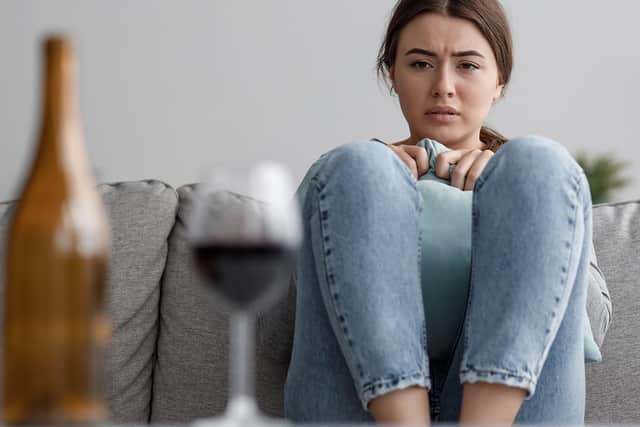Hungover? Anxious? Neuro experts reveal just how to reduce 'hangxiety'
and live on Freeview channel 276
However, with an increased alcohol intake comes an increased hangover risk.
Research shows that searches for the term “hangxiety meaning” have risen by 120% in the past year, suggesting many of us are left feeling anxious the morning after.
Wanting to explore this phenomenon further, the experts at Brainworks Neurotherapy have explained exactly what “hangxiety” does to the brain and have provided seven key tips on how to deal with “beer fear”.


Advertisement
Hide AdAdvertisement
Hide AdJames Roy from Brainworks Neurotherapy comments on what “hangxiety” does to the brain: “Alcohol is hard on the brain and body. Dehydration is certainly a factor, but there are less well known effects at play as well. On average it takes about a day to fully metabolise the alcohol after a night out.
“While alcohol is still in the system new neural nets don't form properly, and learning is compromised. Rather than making solid new connections while learning, the dendrites (the little neuron arms) tend to miss their targets and connect where they shouldn't. It is the same effect as seen in foetal alcohol syndrome, when there is alcohol in the system new neural nets struggle to form. Even in an adult this can cause shrinkage to the brain and damage the nervous system.
“Alcohol also compromises our ability to hold back emotions - a brain factor called "gating". Combined with other weakening factors such as fatigue from staying up late and poor quality of sleep that alcohol gives us, emotions can be unusually close to the surface the following day.
“As a result a hangover gives us a glimpse as to what lies under the surface of our conscious mind. If anger is the underlying propensity, after a night out "hangry-ness" will be the result. If anxiety is your underlying habit (as it is for so many), "hangxiety" will be at the forefront. For others, low mood or depression can come to the fore.
Seven expert tips to help with “hangxiety”
1. Prevent the dehydration
Advertisement
Hide AdAdvertisement
Hide AdThe dehydration alcohol causes is normally to blame for the inevitable next day headache. While you’re out, remember to keep yourself hydrated. Keep drinking water throughout the night in between the alcoholic drinks. Although it may not stop the headache all together, the added hydration will certainly help relieve some of the anxiety.
2. Line your stomach
Before going out make sure to eat something. Drinking on an empty stomach can be dangerous. Not only will people become drunk quicker, but there is an increased risk of getting sick the next day. The lack of food will make the alcohol more difficult to process in the body and then detox, prolonging the “hangxiety” symptoms.
3. Sleep it off
Alcohol can negatively impact quality of sleep. A 2013 study found that sleep deprivation amplified reactions in the amygdala and anterior insula. These are parts of the brain that are associated with anxiety. By sleeping and resting, the body will calm down and alleviate some of the anxious feelings. Sleeping will also give the reactions in amygdala and anterior insula time to regulate.
4. Rehydrate yourself
Consumption of alcohol causes dehydration and also stops the production of electrolytes. The brain needs electrolytes to function, keep balanced, carry electrical charges and importantly regulate hydration. After a night out, reach for a sports drink to rehydrate quickly. These are packed with electrolytes which will increase the body’s low electrolyte levels, rehydrate and improve brain function.
5. Eat to regulate blood sugars
Advertisement
Hide AdAdvertisement
Hide AdAlcohol can play havoc with the body’s blood sugar levels. A slump in blood sugars can cause nausea, which contributes to the “hangxiety” symptoms. To help with this opt for a lighter meal, containing complex carbs to increase blood sugars. This will help the body regulate the blood sugar levels and alleviate any feelings of nausea.
6. Speak to your friends for reassurance
To ease your mind, speak to the people you went out with for some reassurance about the previous night's events. Getting your thoughts and worries out there will help ease the “hangxiety” and your friends can provide some reassurance and hopefully put your mind at rest.
7. Set yourself a limit for next time
Even after the hangover symptoms have passed there may be lingering “hangxiety”. Ahead of the next night out think about how to prevent the “hangxiety”. Set yourself a limit, for some this could be a number of drinks across the night. For others, it may be a time limit for each drink to avoid drinking too quickly.